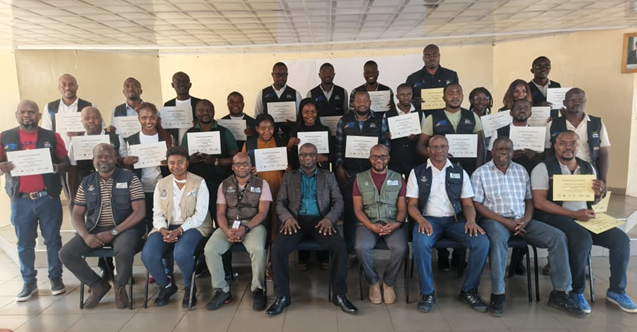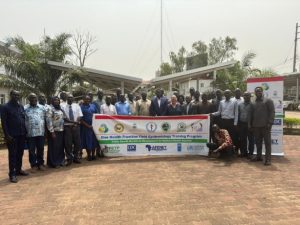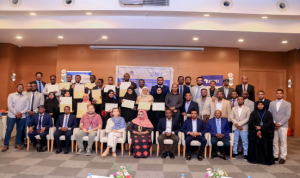Strengthening Zambia’s Public Health Workforce at the Local Level
-
by
AFENET

Highlights from the 32nd Frontline Field Epidemiology Training Program Graduation, Luapula Province
The graduation of the 32nd Cohort of the Zambia Frontline Field Epidemiology Training Program (FETP-Frontline) marked another milestone in advancing Zambia’s capacity to prevent, detect, and respond to public health emergencies at the local level.
Twenty-five graduates proudly completed the intensive program, equipped with practical epidemiological skills to transform public health practice in their districts. The FETP-Frontline, a flagship initiative of the Zambia National Public Health Institute (ZNPHI), strengthens disease surveillance, enhances data analysis, and equips frontline officers to mount rapid outbreak responses.
The event, held in Samfya, brought together graduates, mentors, partners, and senior public health leaders, underscoring the spirit of collaboration that drives Zambia’s health security.
The ceremony was graced by senior leadership, including Dr. James Exnobert Zulu and Mr. Ernest Kateule (National Coordinators, ZNPHI), the Acting Provincial Health Director Dr. Marlon Chunda (also Public Health Specialist, Luapula PHO), Mr. Mateyo Moyo (Chief Environmental Officer), and FETP mentors Mr. Ante Mutati, Ms. Martha Malasa, and Mr. Francis Mwenya, based in Lusaka Province.
Graduates celebrated alongside national and provincial leaders, capturing the collective pride in the program’s impact on Zambia’s workforce.
Calls to Action from National Leadership
In his remarks, Dr. James Exnobert Zulu emphasized that the title of frontline epidemiologist gains meaning when paired with decisive action. He urged graduates to transform their knowledge into real-world outcomes—preventing illness and saving lives across Zambia.
He called on graduates to:
- Foster a culture of continuous learningwithin their teams.
- Share knowledge generously with peers and institutions.
- Document and publish their experiences to advance scientific evidence.
Dr. Zulu highlighted the critical role of vigilance, positioning frontline graduates as the “eyes and ears” of the health system—vital for detecting unusual events before they escalate into major public health threats.

Keynote Reflections from Luapula Province
Delivering the keynote address, Dr. Marlon Chunda applauded the graduates for their resilience and commitment through months of rigorous, hands-on training. He explained that residents engaged in real-time public health activities such as:
- Outbreak investigations
- Data quality audits
- Surveillance reviews
- Critical problem analysis
“These efforts have resulted in measurable improvements across the province,” he stated, citing enhanced data analysis, improved completeness and timeliness of reports, fewer errors in the electronic Integrated Disease Surveillance and Response (e-IDSR) system, and sharper outbreak response.
Dr. Chunda stressed the importance of scaling FETP-trained personnel to every district, ensuring grassroots resilience in Zambia’s public health system.
In closing, he acknowledged the support of partners—including the World Bank, Africa CDC, and ZNPHI mentors—and congratulated graduates for anchoring the foundation of a healthier Zambia.
Looking Ahead
The Cohort 32 graduation is more than a ceremony—it represents a transformative step in building Zambia’s health security from the ground up. With their new competencies, these graduates are prepared to lead, innovate, and safeguard communities against emerging and future public health challenges.




